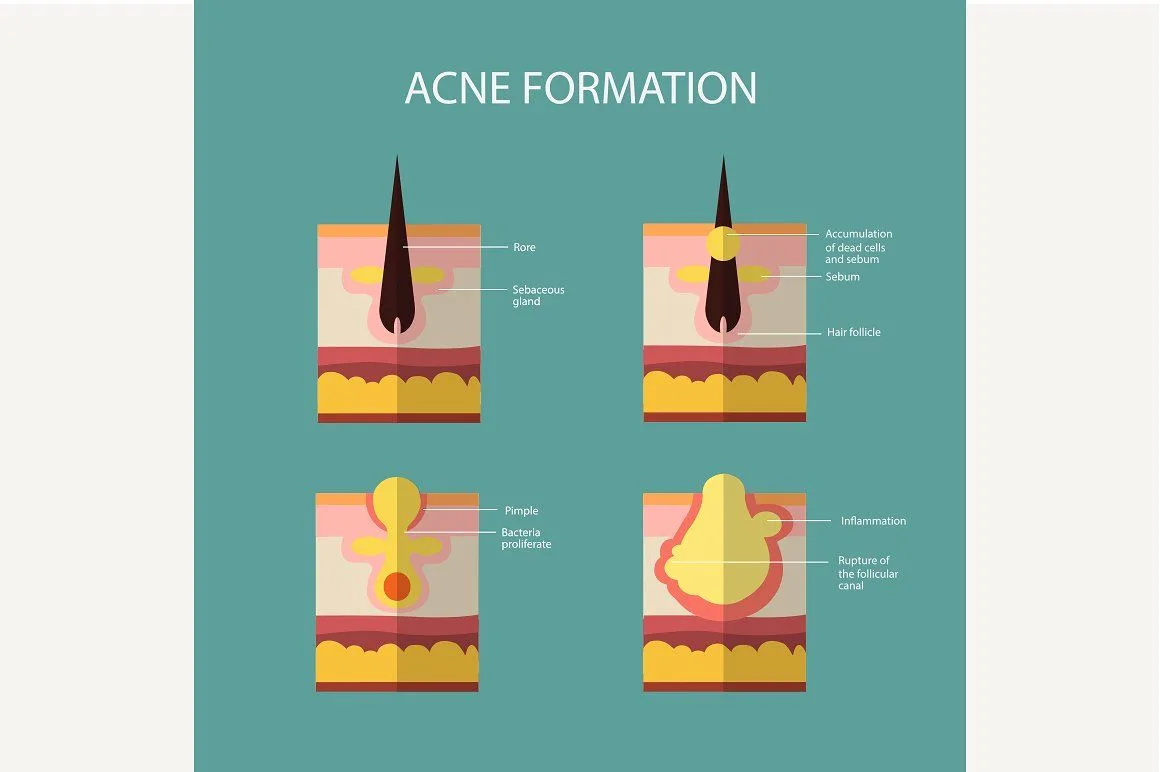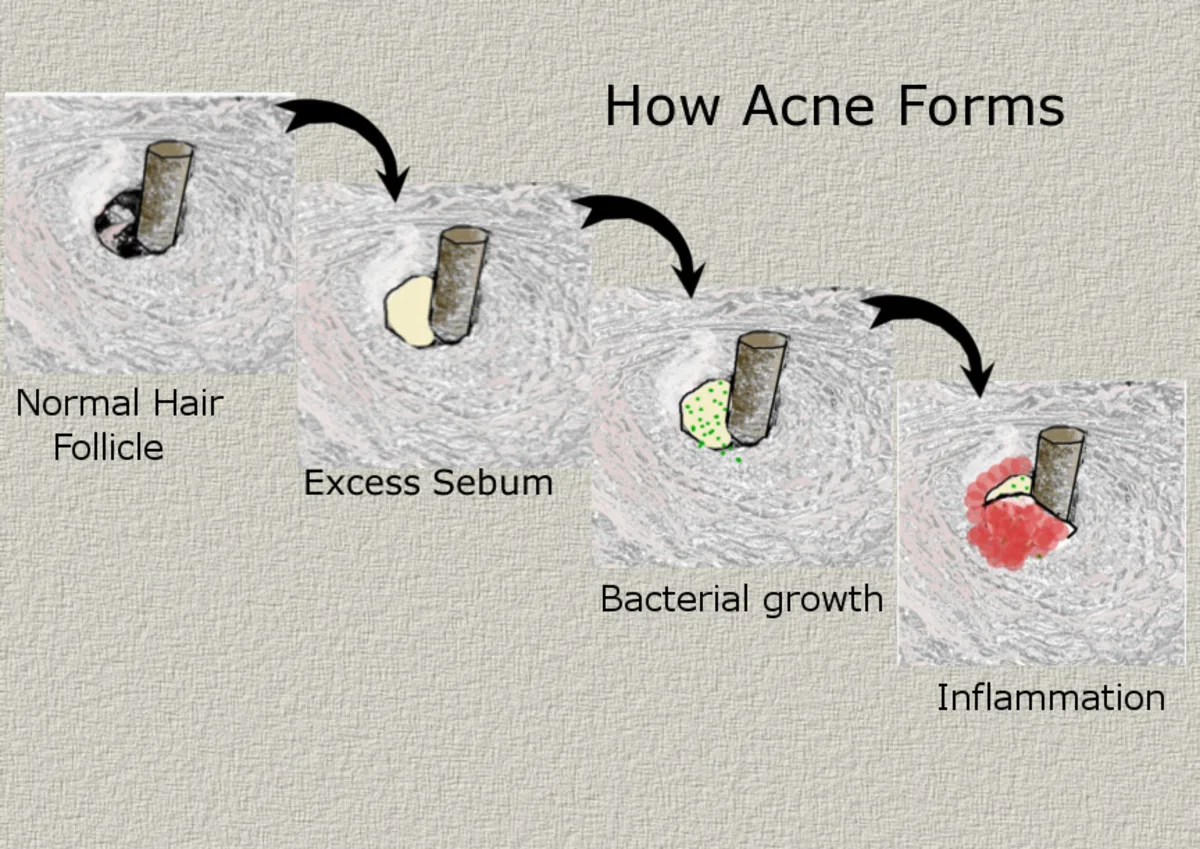Acne, pimples, or other skin conditions are normal for human skin so there is nothing to be ashamed of. But, if you wonder why your skin is filled with red painful acne, you need to know the science behind acne formation. Get to know about what goes on under your skin that causes the poked-out, reddish, puss-filled pimples on your face and body.
Science Behind Acne Formation

It is high time to ditch the misconception that acne occurs due to uncleanliness because it is a natural process for skin types that are prone to it. You might have always wondered why you woke up one day with a big pimple on your nose, cheek or forehead. That does not happen all of a sudden. A lot is going on under the surface of your skin so let’s take a tour of the scientific details of it interestingly.
To begin with, human skin is like a mesh with tiny holes all over it that we call pores. These pores work as a sponge that absorbs moisture, air, and even dirt inside it. The pores have hair follicles rooted in the inside layer of the skin.
The hair follicles are attached to sebaceous glands that are the main culprits for causing acne on acne-prone skin. Sebaceous glands have a specific purpose of keeping the skin moisturised by producing oil that prevents our skin from drying out.
Another major thing is the Keratinocytes which contribute to acne formation. Basically, Keratinocytes are a thin lining of cells that surrounds the hair follicles which keeps the hair healthy. So, in total, we have hair follicles, sebaceous glands, and Keratinocytes in our pores.
How does Acne form?

The process of acne formation begins when keratinocyte cells shed through a natural process and the remains stay in the pores. Meanwhile, sebaceous glands continue to do their oil-making process. In reaction, the oil (sebum), hair, and dead cells accumulate in the pore and cause inflammation due to bacteria production. That clogged pore looks for a way to let out which comes in the form of a bulging whitehead or blackhead that turns into acne, pimples, pustules, cysts, and others types of acne.
It is natural for many acne-prone people but there are ways to avoid and prevent acne formation by taking care of hygiene, changing lifestyle, using home remedies, and medications, and using a proper skincare routine.
